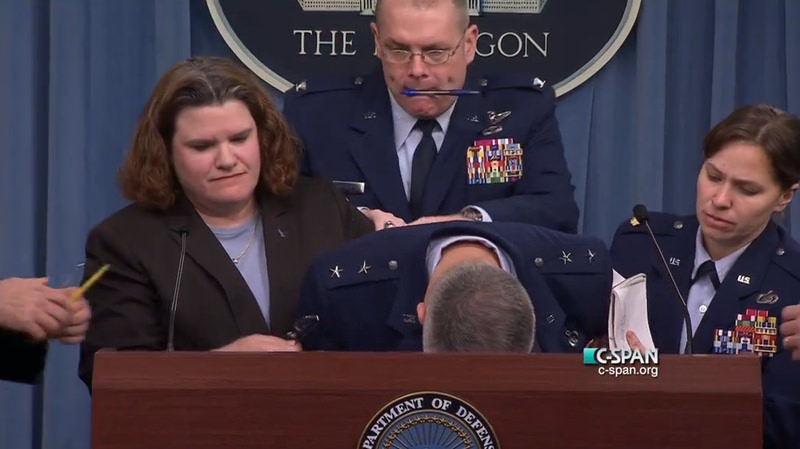
We need to rebuild the ranks of the senior officer corps
with members of a new generation who know where we went wrong
Andrew J. Bacevich / The Quincy Institute for Responsible Statecraft
(September 11, 2021) — Anniversaries offer opportunities for reflection. The 20th anniversary of 9/11 should elicit second thoughts galore.
The rollercoaster of history finds Americans today more than a little confused. To put it mildly, things weren’t supposed to turn out this way. The great crusade launched with considerable fanfare in September 2001 has stalled. That 20 years after 9/11, the Taliban have once more seized power in Kabul must surely rate as one of the preeminent ironies of the past century.
Addressing the nation in January 2002, President George W. Bush had promised a different outcome. Americans, he declared, had “been called to a unique role in human events.” The nation was embarking upon “a decisive decade in the history of liberty.”
Rarely has the world faced a choice more clear or consequential. Our enemies send other people’s children on missions of suicide and murder. They embrace tyranny and death as a cause and a creed. We stand for a different choice, made long ago, on the day of our founding. We affirm it again today. We choose freedom and the dignity of every life.
The best one can say is that sometime early on this quest for freedom and dignity began to go awry. When? I nominate the moment when Saddam Hussein’s storied weapons of mass destruction failed to materialize. Since then, it’s been mostly downhill.
Allow me to suggest that senior US military officers cannot absolve themselves of responsibility for the disappointments, disasters, and frustrations that have marked the ensuing two decades of our national life. The point is not to let civilian officials, beginning with the commander-in-chief, but also including the Congress, off the hook. It is rather to suggest that the nation’s mood and outlook might be rosier if the wars of choice that we inaugurated after 9/11 had ended in victory.
Our generals were expected to deliver those victories. As the abysmal outcome of the Afghanistan War reminds us, they came up short.
Allow me to suggest a corrective action: a purge. Oblige all active duty three- and four-star generals (and admirals) to retire forthwith. Rebuild the ranks of the senior officer corps with members of a younger generation willing and able to acknowledge the shortcomings of recent American military leadership at the top.
After the Pearl Harbor attack of December 7, 1941, the top US commanders in Hawaii — Admiral Husband Kimmel and Lieutenant General Walter Short — were summarily relieved of their posts, reduced in rank, and retired. The action might not have been altogether fair, but it was necessary. Unless failure has consequences, further failures are all but guaranteed — a dictum as true in war as in business or sports or any other competitive enterprise. Firing Kimmel and Short laid down a marker: henceforth, failure was not to be tolerated.
Granted, purges tend to sweep up the nominally innocent along with the definitively guilty. But we need not shed tears for any senior officers given their walking papers. They will receive generous pensions, lifelong healthcare, and opportunities to monetize their active duty experience, whether within the military-industrial complex or elsewhere. They’ll do just fine.
As a practical matter, however, getting rid of the deadwood is likely to be the easy part. Identifying a new cohort willing to acknowledge the subpar US military performance of the recent past and possessing the creative imagination needed to undertake substantive reform may prove challenging.

I would suggest the following approach: The secretary of defense — not the current incumbent; as a former four-star he too should be purged — should personally interview one- and two-star officers deemed to possess particular promise. The interview need not be long. Indeed, it should consist of a single question: “On a scale of one-to-ten, where one is lousy, ten excellent, and five mediocre, how would you rate US military performance over the past 20 years?”
Those replying with a number above five should be immediately excused and denied consideration for further promotion. Those replying with a number of five or below should be invited into an adjacent room and given two hours to write an essay that addresses the following topic: “What is the problem and how do we fix it?”
Those essays should provide the basis for selecting and assigning the next generation of senior leaders. Oh, and if none of the one- and two-stars find fault with US military performance since 9/11, then it will become necessary to expand the search into more junior ranks. It has long been my impression that officers wearing bars or oak leaves are more open to critical thinking and original ideas than those who wear stars.
Jonathan Swift’s “A Modest Proposal For preventing the Children of Poor People From being a Burthen to Their Parents or Country, and For making them Beneficial to the Publick,” published in 1729, suggested that the impoverished Irish might improve their condition by selling their children to be “stewed, roasted, baked, or boiled” and served on the tables of well-to-do English gentry. My own modest proposal envisions nothing quite so drastic.
But whereas Swift’s “Modest Proposal” was intended as a satire, mine is not. Absent serious efforts to reform the senior officer corps, we can expect more Afghanistans to come. Listen to General Mark Milley, Joint Chiefs of Staff chair, who expected Afghan forces to hang on “from weeks to months and even years following our departure” and tell me I’m wrong.
Posted in accordance with Title 17, Section 107, US Code, for noncommercial, educational purposes.